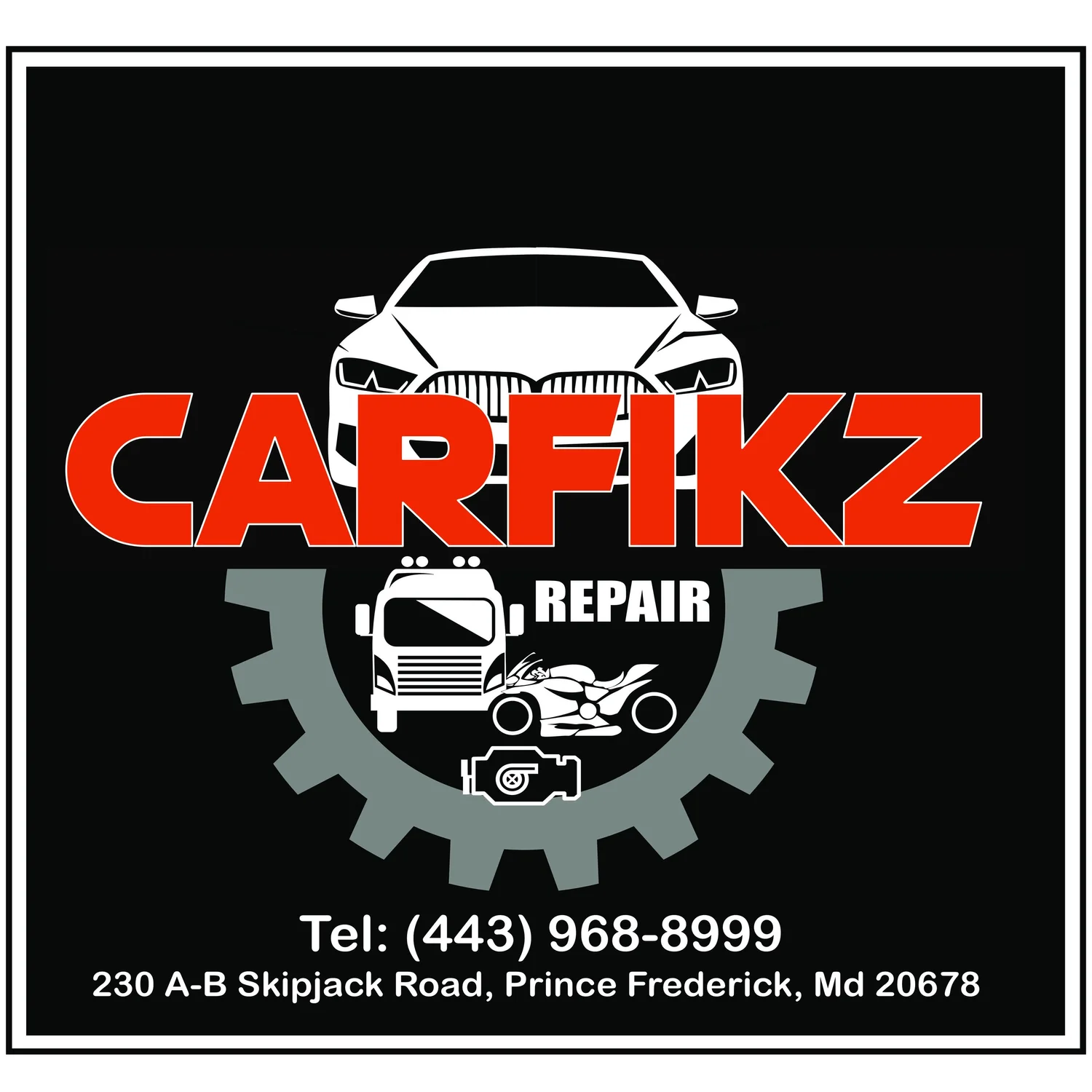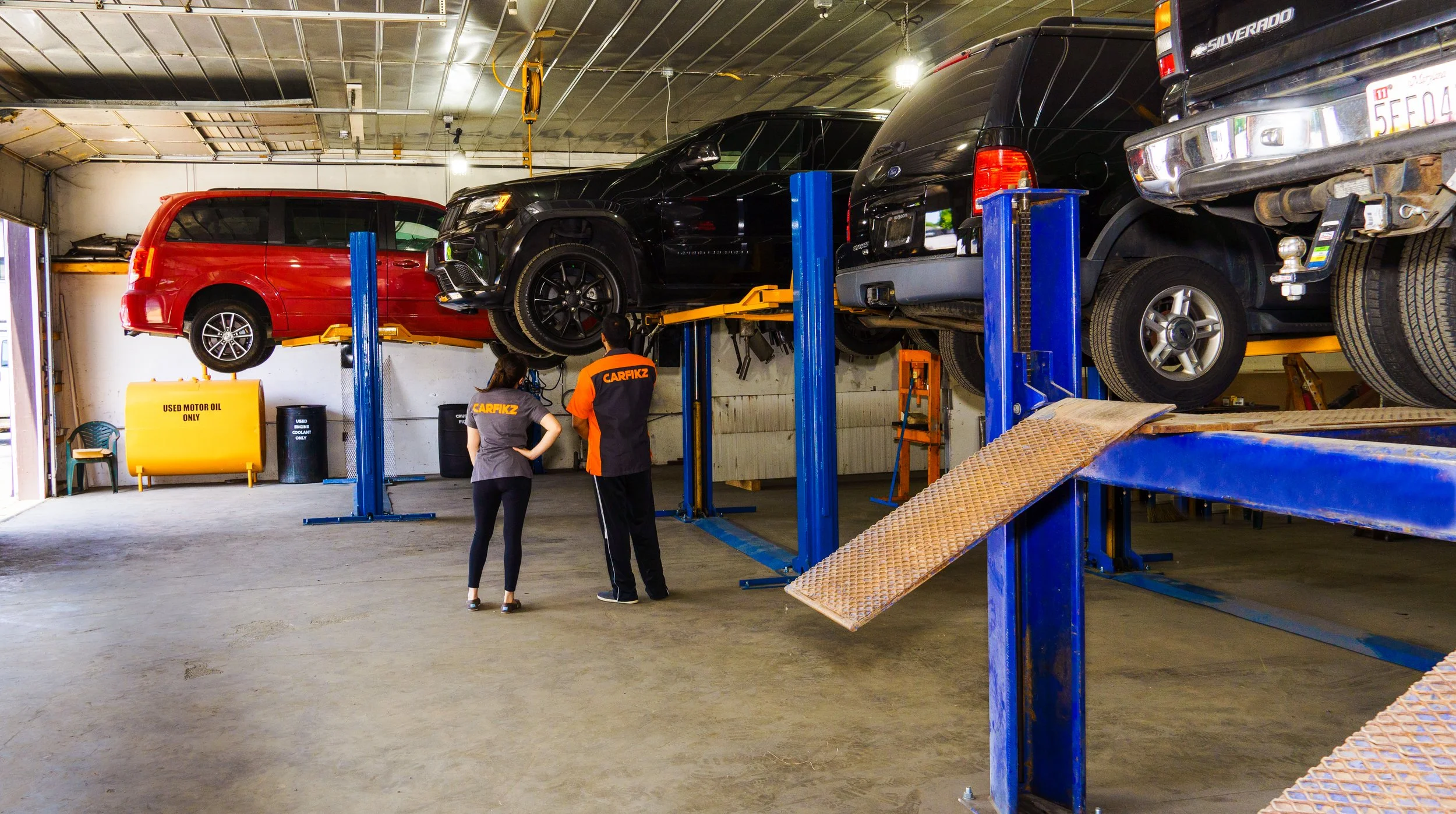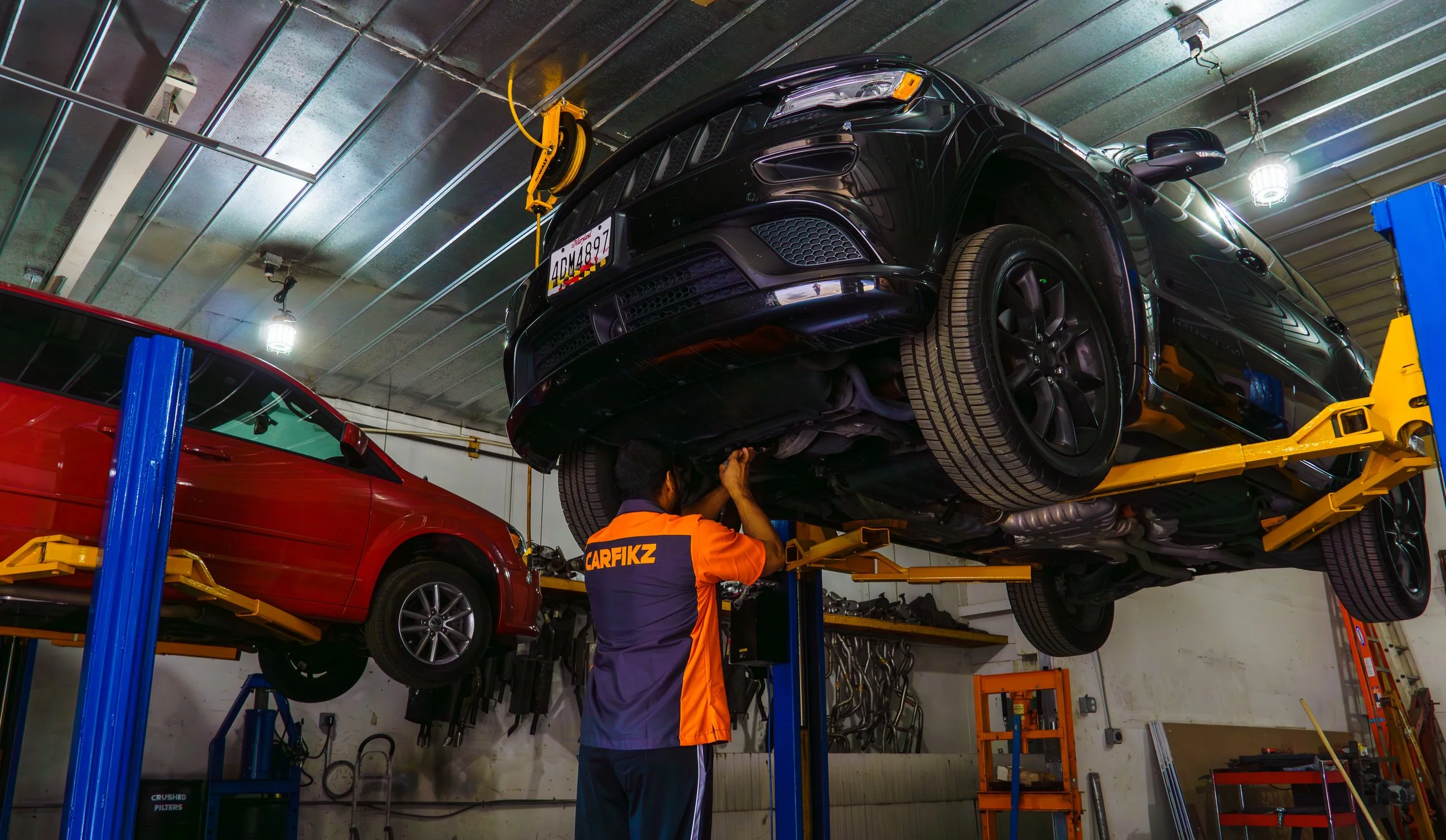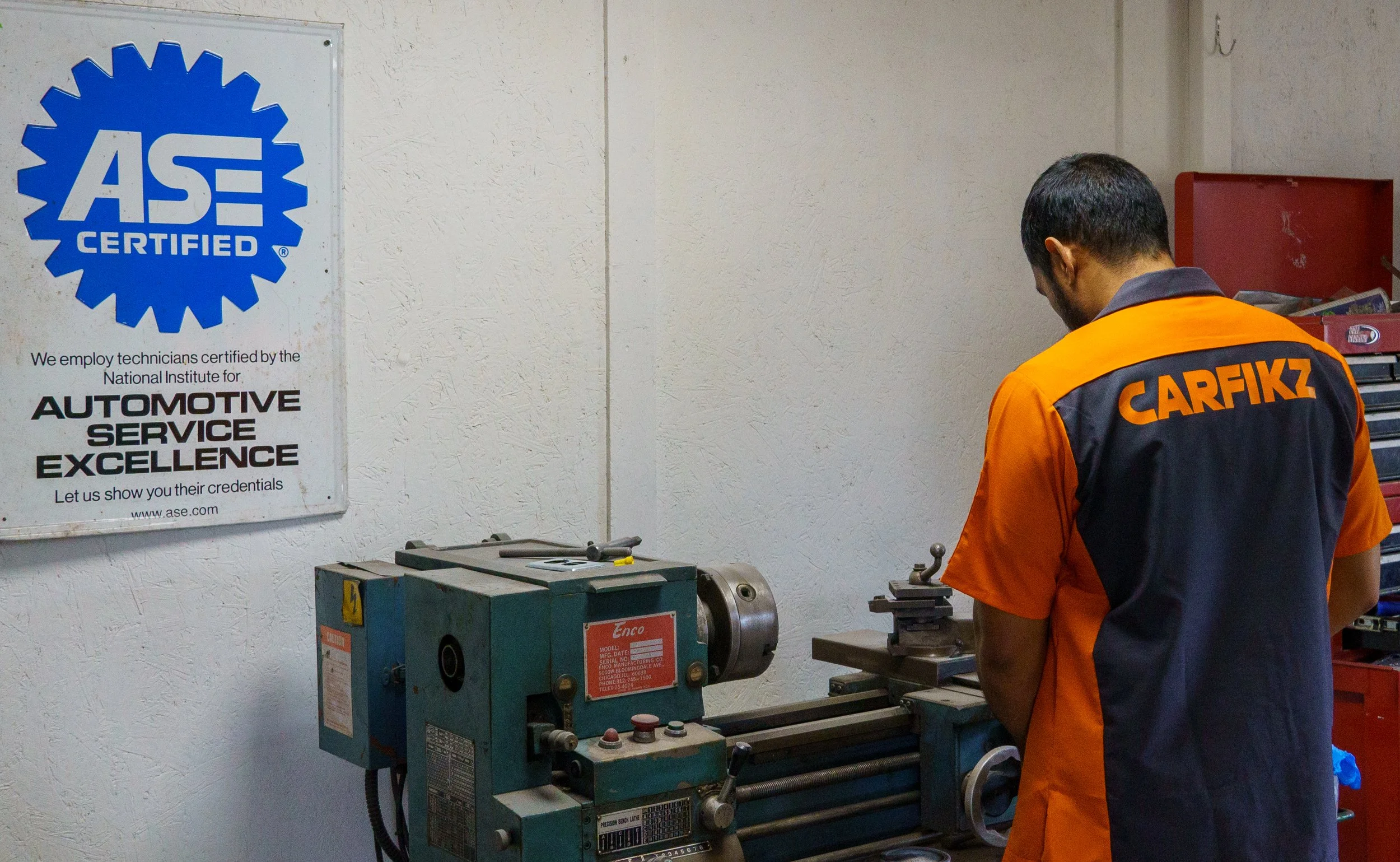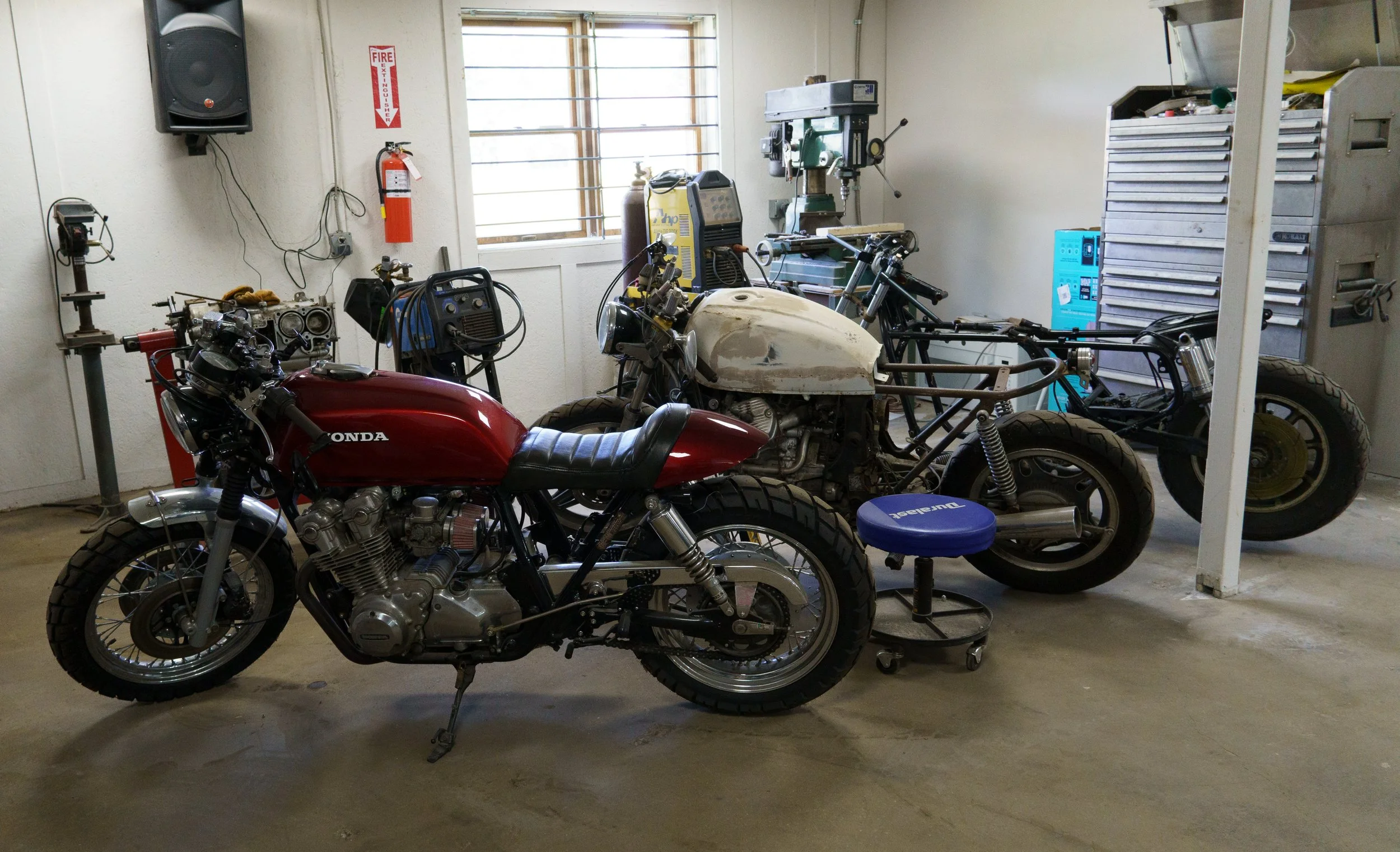The Facility
Our workshop is located at 230-A Skipjack Rd. Prince Frederick, at the center of Calvert County, Maryland. It boasts of a fully equipped 4-bay indoor workspace that can accommodate up to 12 vehicles simultaneously. Works are always done indoors, shielded from the external elements and varying weather conditions.
On a separate area within the facility lies the milling and machinery section which is fully equipped for more specialized works like broken parts fabrication for which these can be done independently in-house, if deemed necessary.
We have a comfortable, spacious and climate-controlled waiting area for “while-you-wait services”. In there, you will find refreshments, coffee, free wi-fi, a customer restroom and comfortable lounge seating. Customer parking is an abundant spread across the shop front – there is even a dedicated parking slot for the physically challenged. Our night drop box service allows you to drop off your car anytime even if our shop is closed.
Our services
The average driver in the United States incurs about 12,000 miles on their vehicle every single year. That amounts to significant wear and tear on vehicles. Whilst a typical driver is able to identify fundamental symptoms that need immediate auto service, he or she might not have the time, knowledge and initiative to undertake needed repairs or preventive maintenance. CARFIKZ fixes all vehicle related problems, be it mechanical, electrical, controls, cooling, brakes, suspension and exhaust.
At CARFIKZ, we provide the full range of Auto Repairs and Maintenance. From mundane tasks like bulb replacements, simple fluid top-ups through to complex computer diagnostics and even complete engine or transmission replacements. We emphasize and promote preventative maintenance because it saves customer’s money and hassles from serious and expensive breakdowns.
We have highly skilled mechanics, technicians and administrative staff who work very hard to ensure quality of work earns customer trust and satisfaction for full peace of mind. Shop workforce is a mix of Automotive Service Excellence (ASE) certified mechanics and seasoned professionals in the industry.
Operational hours are as follows:
Monday thru Friday 8:00 AM till 4:00 PM
Saturday 8:00 AM till 12:00 PM
Sunday Closed
Automotive Repair and Service
We are a suitably sized, well organized automotive shop with 4 vehicle lifter bays that can operate simultaneously for faster and efficient service.
We have a dedicated a Milling and Machining section equipped with Lathe and precision machinery.
We specialize in Diesel engine works.
We undertake Transmission, Engine repairs, overhaul and service.
We perform all mechanical and electrical services for vehicles.
We service vehicles ranging from passenger cars, light duty trucks up to one ton and some medium duty trailer work.
We undertake muffler fabrication and repair.
Other service offerings:
Motorcycles and ATV’s
Fuel System & Engine tune-up services
For when your bike sat in storage for the winter, let us get your bike back into great running condition.
Strange noises, odors or unusual vibrations?
Poor throttle response, rough idling?
Constantly low oil levels?
Batteries and Electrical System services
Battery power always depleted and don’t hold a charge? We just don’t replace your battery, we check out the charging system as well to make sure it stays running.
Suspension
Steering troubles?
Feeling like riding on a pogo stick down the road? Fork seals or shock absorbers leaking? Let us check your bike’s suspension system and get the proper damping and handling you demand as per your riding style.
Exhaust System fabrication and upgrades.
Whether it’s for the sound, the look or power and torque gains, we can custom fabricate and modify exhaust pipes to fit aftermarket exhaust upgrades for your bike.
Complete Maintenance Service (PMI)
For regular Preventive Maintenance Inspection (PMI) that could prevent costly repairs and breakdowns we take care of everything from engine and transmission oil to brakes and electrical upkeep.
Some featured tips...
Some featured tips...
1. Oil and Fluid marks
You might have noticed some sort of liquid stain or a small puddle of oil left on the ground as you pull out of your garage or some sort of oil discharge in the tailpipe. The fact is that liquid discharge (of the oil classification) can indicate a number of issues that need to be checked. If you notice a pink fluid, then that might well be transmission fluid. A green or orange fluid in contrast, would probably be coolant.
· Regular Oil Changes
One of the main causes of oil leaks is failing to get your oil changed in a timely manner. Although synthetic oils can be longer between changes, they should still not be allowed to go beyond the mainstream 10,000 miles limit. However, some prefer that 5,000 miles is the longest that you should go between oil changes. From a basic rule of thumb, it is best to adhere to manufacturer’s recommendations.
Oil seals and gaskets can gradually erode and fail over time, but there’s a good chance that your oil leak is related to dirty oil or oil that has lost proper viscosity circulating through the system and degrading the parts, including the engine.
· Seals, Connections, etc.
Many different issues could be attributed to an oil leak. It will be best to have things inspected and checked out. That said, oil leaks are mostly caused by common things like bad oil seals, worn-out rings and poor connections that might have been causing your vehicle to blow out a lot of blue smoke from the exhaust system. Symptoms like this needs to be dealt with, right away!
The interesting, and somewhat frustrating aspect in today’s updated vehicle designs is that newer vehicles come equipped with underbody shielding/ plastic liners that tend to conceal obvious oil leaks unless removed. These covers restrict oil leaks from seeping down and hitting/ pooling on the ground. This makes problems undiagnosed as there would not be any noticeable symptom unless deeply scrutinized.
There’s still no substitute for having ASA-certified technicians to check or inspect under your vehicle to ascertain whether your engine gaskets have degraded over time.
2. Vehicle Diagnostics
Nowadays, diagnostic tools make life easier. Software and on-board computers enable interface to sensors inside your vehicle that can alert you of impending faults or significantly speed up the search for a solution to a problem. However, one must be mindful of the fact that vehicle diagnostics have blind spots that your trusted mechanics can see through. It is not enough to rely on the diagnostic codes as your only source of information to warrant repairs on your vehicle.
It’s a rare occurrence for a vehicle diagnostic error code to be wrong. However, replacing a part or making a repair that addresses the error code might not fully fix the vehicle’s problem as one error code can mean multiple faults. Professional vehicle diagnostics would easily catch the other issues.
Not all vehicle diagnostic reports indicate that a part is broken or missing. Most of the diagnostic error codes indicate the symptom - that is, they tell us what is failing but not why it is failing. Vehicles have numerous inter-related parts for specific functionality so reliance on error codes alone might just give you the most obvious reasons. Auto repair shop diagnostic tools pull more information than basic code readers. They include detailed data about vehicle performance and thus gives more context to the error code. This, in conjunction with the expertise of knowledgeable mechanics result in more accurate diagnostics to fix your vehicle correctly, the first time around!
3. Preventive Maintenance
When you perform preventive maintenance at regular intervals, it keeps your vehicle in proper working order and helps prevent expensive mechanical repairs and circumstances forbid - a roadside breakdown. A distinct benefit of being in such a routine maintenance program is that when it’s time to sell or trade-in your vehicle, having detailed service records help appreciate its value. One also needs to be mindful of the fact that failing to follow preventative auto maintenance guidelines could void a vehicle’s warranty.
Automobile engines are intricate machines containing many interconnected parts with inter related functions. Proper maintenance, not limited to replacing spark plugs, drive belts, timing belts or chains, and changing air and fluid filters, is needed to identify faults, avert impending breakdowns and keep the engine running as efficient as it should.
Scheduled maintenance check-ups capture a vehicle’s fluid levels for engine oil, brake and power steering systems and radiator coolant. Other items with significant safety purposes such as hand brake tension, brake pad condition and windshield wipers, should be checked routinely and replaced when necessary to keep them operating effectively.
Words from The Owners..
